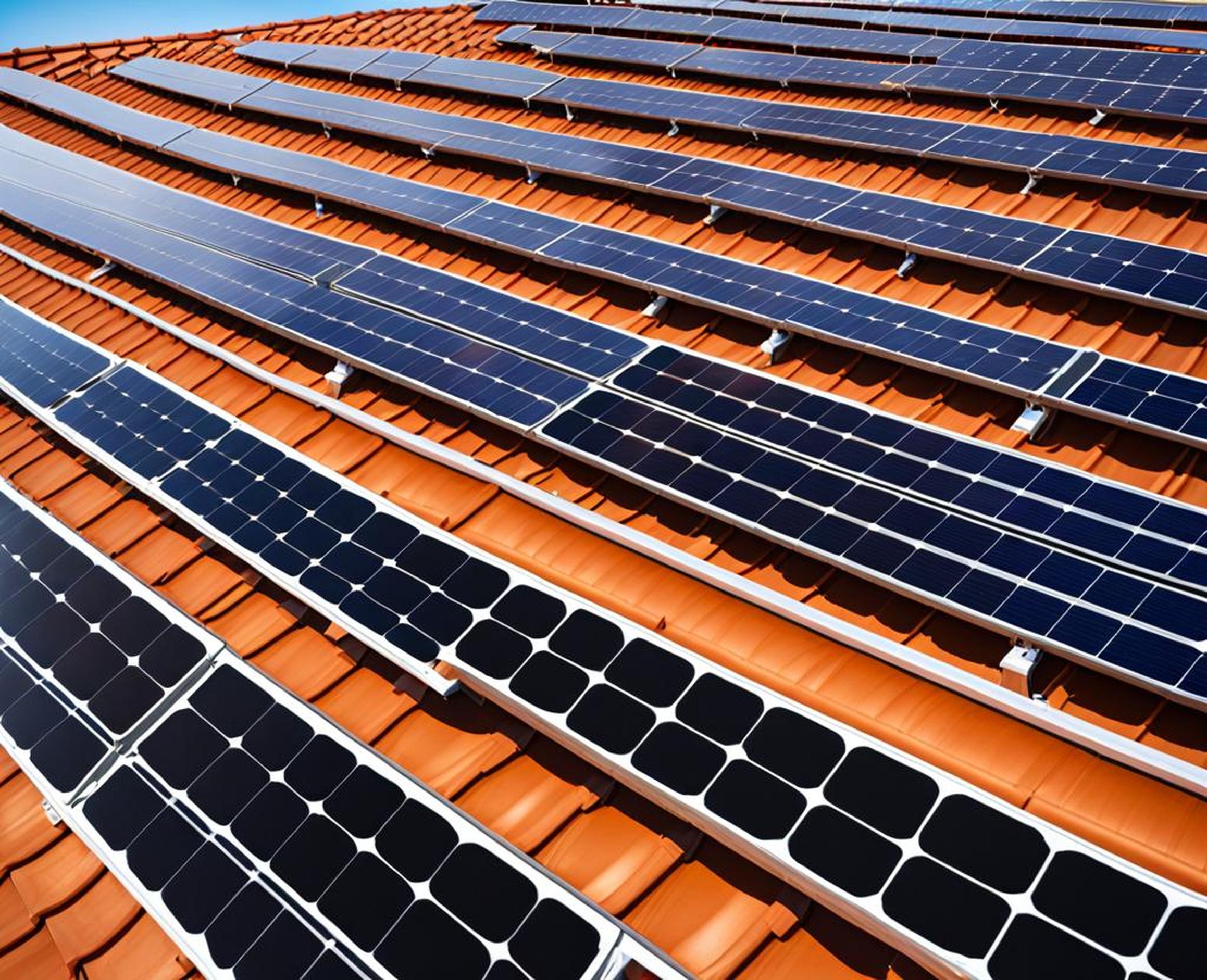Sarah and Mark recently purchased their dream home in a sunny suburb. As first-time homeowners, they are eager to make upgrades that will increase their home’s value. Their neighbor just installed rooftop solar panels and raved about the energy bill savings. This piqued Sarah and Mark’s interest, but they wonder how much solar panels would really impact their monthly bills or home value. We’ll explore the pros and cons to help them decide if rooftop solar is right for their home.
Many homeowners like Sarah and Mark are curious if the benefits of rooftop solar panels are worth the investment. We’ll look at how solar panels work, costs, incentives, payback period, aesthetics, and more. With the facts, you can determine if rooftop solar boosts savings or your home’s resale value.
How Do Rooftop Solar Panels Work?
Rooftop solar panels, also called photovoltaic (PV) systems, convert sunlight into electricity. Solar panels contain PV cells made of materials like silicon that release electrons when exposed to light, generating a DC current. An inverter then converts this current into usable AC electricity for your home.

Panels are mounted on racks or railings and wired into your home’s electrical panel. This allows the solar-generated electricity to power lights, appliances, and other needs. Excess energy not used can flow back to the grid and earn bill credits.
Key Factors That Impact Performance
Several key factors determine how much electricity rooftop solar panels produce:
- Sun exposure based on roof orientation and shading from trees or other buildings
- Local weather and climate conditions like sunny days versus overcast
- Overall system size – more panels generate more electricity
- Panel efficiency ratings – higher is better
- Proper installation for optimal sun alignment
- Regular maintenance like cleaning off dirt and dust
Homes with unshaded, south-facing roofs tend to get the highest production. Solar professionals can assess your specific roof and customize the solar system design.
Costs of Rooftop Solar Panels
For a typical 5kW residential solar system, average costs range from $11,000 to $14,000 before incentives according to the nonprofit Solar Energy Industries Association. However, prices vary significantly depending on your location and local installation costs.
The main expenses include permitting, the solar panels, inverters, racking equipment, wiring and labor for installation. Ongoing costs include system monitoring, maintenance, repairs and inverter replacement every 10-15 years.
Available Incentives and Savings
Various state, utility and federal incentives can offset rooftop solar panel costs. These include:
- Federal Solar Investment Tax Credit – 26% of system costs through 2032
- State tax credits and rebates – amounts vary
- Net metering – selling excess power back to your utility
- Low-interest solar loans
Incentives can reduce initial solar costs by 25% to over 50% in some states. The electricity generated also slashes your utility bills.
Payback Period and Return on Investment
How long it takes for bill savings to cover your initial solar investment is called the payback period. This varies based on solar panel costs in your area, electricity rates, incentives received and how much power your system produces.
Typically, rooftop solar payback periods range from 6-12 years. After paying back the initial costs, the system continues providing free electricity for many more years, leading to a strong return on investment.
For example, a $20,000 solar system with $6,000 in incentives at a home using $150 in electricity per month could pay off in under 8 years. It would then provide over $18,000 in electricity savings over the next 10 years.
Impact on Home Value
Studies show home buyers are willing to pay more for a house with existing solar panels versus one without. This “solar premium” averages around 4% of the home’s value according to the Lawrence Berkeley National Laboratory.
For a $300,000 home, this means rooftop solar could boost the value by $12,000 or more. This boost in equity can help offset part of the original costs.
When selling your home, solar panels can also give you a competitive edge. Eco-conscious buyers eager to save on bills may choose your house over another.
Aesthetic Considerations
Solar panels can blend nicely into modern roof designs. Options include:
- Solar shingles installed instead of asphalt roof tiles
- Panels mounted flush to the roof
- Panels angled along with sloped rooflines
Minimizing visible wiring and selecting colors to match your roof can keep curb appeal intact. A clean, streamlined look also adds a touch of high-tech elegance.
Off-Grid vs Grid-Tied Systems
Rooftop solar lets homeowners disconnect from the electrical grid entirely as an “off-grid” system. This requires battery storage to supply power at night when solar panels aren’t producing.
Batteries significantly increase costs. Grid-tied systems without batteries are more common. Excess solar electricity feeds the grid, earning credits on your utility bill.
Going completely off-grid eliminates electric bills but requires careful energy monitoring and larger solar systems to meet needs using storage.
Key Questions to Ask Before Installing Solar
Homeowners exploring rooftop solar should consider:
- Roof age, condition and sun orientation – south-facing ideal
- Recommended system size and estimated production
- Total costs and available incentives to maximize savings
- Payment options like solar loans or PPAs
- Expected bill offset and payback period
- Warranties, insurance considerations, and protections
Reputable local installers can assess your home’s solar potential and provide estimates on costs, production, incentives and more.
Installing solar panels on your roof has compelling benefits, but also substantial upfront costs. Key pros include lower electric bills, energy independence, and increased home value. Cons involve high initial investment, aesthetic impacts, and dependence on ample sunlight.
Carefully weighing the overall costs versus electricity bill savings and equity gains can determine if rooftop solar makes financial sense. For environmentally-minded homeowners in sunny climates with high energy costs, solar panels can be a smart decision that pays off for decades.
